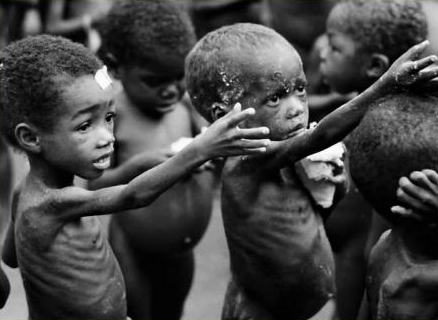
Ἀλλὰ σκληρὸν ἴσως καὶ ἀδύνατον δόξει τισὶ τὸ ἐπίταγμα, τὸ θέλειν γίνεσθαι τὰ γινόμενα ὡς γίνεται. τίς γὰρ τῶν εὖ φρονούντων ἀνθρώπων ἐθέλει γίνεσθαι ἢ τὰ κοινὰ κακὰ ἀπὸ τοῦ παντὸς συμβαίνοντα, οἷον σεισμοὺς καὶ κατακλυσμοὺς καὶ ἐκπτώσεις, λοιμούς τε καὶ λιμοὺς καὶ φθορὰς παντοίων ζῴων τε καὶ καρπῶν, ἢ τὰ ἀπὸ ἀνθρώπων ἀνοσίως εἰς ἀλλήλους επιτελούμενα, πόλεων ἁλώσεις καὶ αἰχμαλωτισμοὺς καὶ φόνους ἀδίκους καὶ λῃστείας καὶ ἁρπαγὰς καὶ ἀκολασίας καὶ τυραννικὰς βίας μέχρι καὶ τοῦ ἀσεβεῖν ἀναγκαζούσας, ἔτι δὲ παιδείας καὶ φιλοσοφίας ἀπώλειαν, ἀρετῆς τε πάσης καὶ φιλίας καὶ τῆς πρὸς ἀλλήλους πίστεως, καὶ τεχνῶν πασῶν καὶ ἐπιστημῶν, διὰ πολλῶν χρόνων εὑρεθεισῶν τε καὶ βεβαιωθεισῶν, τῶν μὲν παντελῆ ἀφανισμόν, ὡς μόνα τὰ ὀνόματα αὐτῶν μνημονεύεσθαι, τῶν δὲ τεχνῶν τῶν πολλῶν τῶν πρὸς βοήθειαν ἡμῖν τοῦ βίου παρὰ θεοῦ δοθεισῶν, οἷον ἰατρικῆς καὶ οἰκοδομικῆς καὶ τεκτονικῆς καὶ τῶν τοιούτων, σκιὰς μόνας καὶ εἴδωλα περιλελεῖφθαι; ταῦτα οὖν καὶ τὰ τοιαῦτα ἐν τῷ βίῳ τῷ καθ’ ἡμᾶς περιττεύσαντα τίς ἀκούειν ἐθέλει, οὐ λέγω καὶ ὁρᾶν καὶ μετέχειν αὐτῶν καὶ θέλειν γίνεσθαι αὐτά, εἰ μὴ κακοθελής τις εἴη καὶ μισόκαλος ἄνθρωπος;
(Simplicius, Comm. in Ench. Epict. 14.18-35 Hadot)
But perhaps this injunction to ‘wish for it to happen as it happens’ will seem to some people to be harsh and impossible. What right-thinking human being wishes for the occurrence of the widespread bad effects resulting from the universe—for instance, earthquakes, deluges, conflagrations, plagues, famine and the destruction of all sorts of animals and crops? Or the impious deeds performed by some human beings on others—the sacking of cities, taking prisoners of war, unjust killings, piracy, kidnapping, licentiousness, and tyrannical force, culminating in compelled acts of impiety? Still less the loss of culture and philosophy, of all virtue and friendship, and of faith in one another? As for all the crafts and sciences discovered and made secure through long ages, some of them have completely disappeared, so that only their names are remembered, and there are only shadows and figments left behind of many of the arts given by the gods for our assistance in life (e.g. medicine, housebuilding, carpentry and the like). These things and others of this sort—of which there has been an excess in our own lifetime—who would want to hear of them, let alone see them, take part in them or ‘wish them to happen as they happen’, except a malevolent person and a hater of all that is fine? (tr. Charles Brittain & Tad Brennan)



